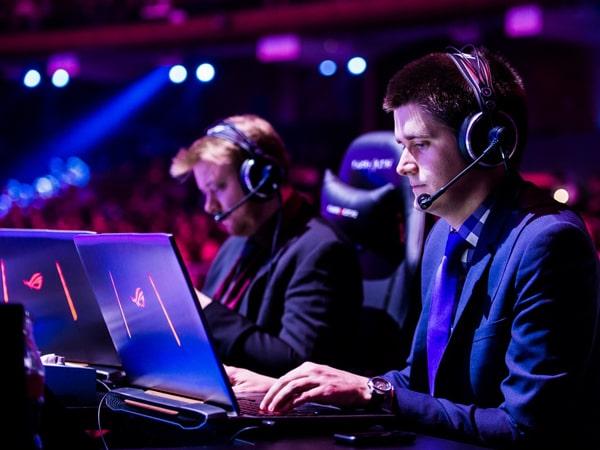eSports – Fast-Growing Industry with Great Opportunities
Cyberposts, or eSports, is called the Number One investment of the decade. The term referrers to worldwide video gaming and online broadcast events with professional and amateur gamers. Let’s consider why the exponentially growing industry is attractive for investors, and learn whether digital sports will compete with the traditional leagues in the nearest future.

Statistics And Prospects of the Industry
In March 2020 stadiums closed, stock markets and oil plummeted, and global tourism ceased to exist. It seemed that the coronary crisis affected absolutely all sectors of the economy. However, for one industry, the pandemic not only went unnoticed, but also helped it grow significantly compared to last year’s numbers. eSports turned out to be the only sport in the world that did not suspend its activities but went online, while the rest took a break.
The world has gone online, and e-gaming has successfully integrated into our life. Global brands started looking to the direction of eSports. According to Statista, the eSports market value reached $1.08 billion, with almost 50% growth compared to 2020. North American, Asian and European markets are the largest markets at the moment. Experts forecast further growth as much as $1.62 billion by 2024.
Let’s have a look at some impressive figures of the eSports industry in 2021:
- $641m revenue on advertising and sponsorships.
- $192m in media rights.
- 474m viewers worldwide.
It is expected that by the year 2024 over 600 million people will watch eSports online.

Real Money Of the eSports Industry
Due to the pop-culturization of the industry during the past two years, video and streaming services like Twitch and YouTube Gaming hit the stratosphere in rising popularity. There is a common perception that eSports is something for the generation of twenty-year-olds. But everything is more than real. Professional gamers compete with each other on high level. Everything is just like the traditional games. There are teams, owners, large cash prizes and advertisement contracts.
According to Forbes, the top 5 most leading teams of the 2020 had over $159 million revenue together:
- TSM – $45m est. revenue, part of eSports is 50%
- Cloud9 – $30m est. revenue, part of eSports is 70%
- Team Liquid – $28m est. revenue, part of eSports is 89%
- FaZe Clan – $40m est. revenue, part of eSports is 20%
- 100 Thieves – $16m est. revenue, part of eSports is 35%
The cash comes from media rights, sales of tickets, merchandise sales, and in-game purchases. And the total revenue is expected to double within the next couple year.
eSports Legal Challenges
eGaming is recognized in many countries as an official sport. Accordingly, it needs to be regulated. The main legal issues in the industry are the lack of a legal framework and experience, as well as the sometimes too young age of participants, who do not pay proper attention to the observance of contracts. Lawsuits due to unresolved disputes are bad for brands’ perception of the industry. The industry of eSports is complex. It includes many other branches of law that have already been formed.
1. Legal support for a team
An eSport lawyer, along with fintech solicitors, can help protect the team’s trademarks: logo and name. Player agreements in eSports are a mixture of contractual and employment law. In addition, organisations usually have an NDA with each player. Contracts are mostly signed for a long period, as in this discipline it is allowed to make player replacements within the team. Every eSports company enters into contracts with advertisers. Consequently, players take responsibility to the sponsors, and specific penalties for breaches of discipline need to be spelled out in the contracts. An eSport lawyer can help protect the team’s trademarks: logo and name.
2. Lawyer for tournaments
During the organization of a cybersports tournament, a lawyer is needed to sign contracts for venue and equipment rentals, contracts with talent, deals with advertisers, partnership agreements with the game publishing firm, as well as the production of merchandise and ticket gross sales.
3. Contracts with the publisher
A cybersports lawyer can help publishers with the development of game licenses, in-game content, and product placement on publishers. Don’t forget about copyright protection for characters, content, and gameplay. Plus, the product has to be GDPR-compliant, because of the large amounts of gamer data.
4. Lawyers for investing in cybersports
Investing is a fairly fresh niche in eSports. These issues require an investment lawyer who knows all the pitfalls of the eSports industry. Many businessmen have already invested in cybersports organizations. And one of the strongest CS:GO team in the world, Astralis, even recently launched an IPO (initial public offering). Investments, mergers, and acquisitions are particularly relevant while the industry is in its nascent stage.
An eSports specialized law firm is needed like air in the industry. Previously, many teams and contest operators turned a blind eye to legal support. Now, after attracting big players, a properly drafted contract is the key to success and peace of mind for productive business in eSports.
Consultation
*Your contact information will be used for our inner purposes and only with the aim to provide you with the best business solutions.



